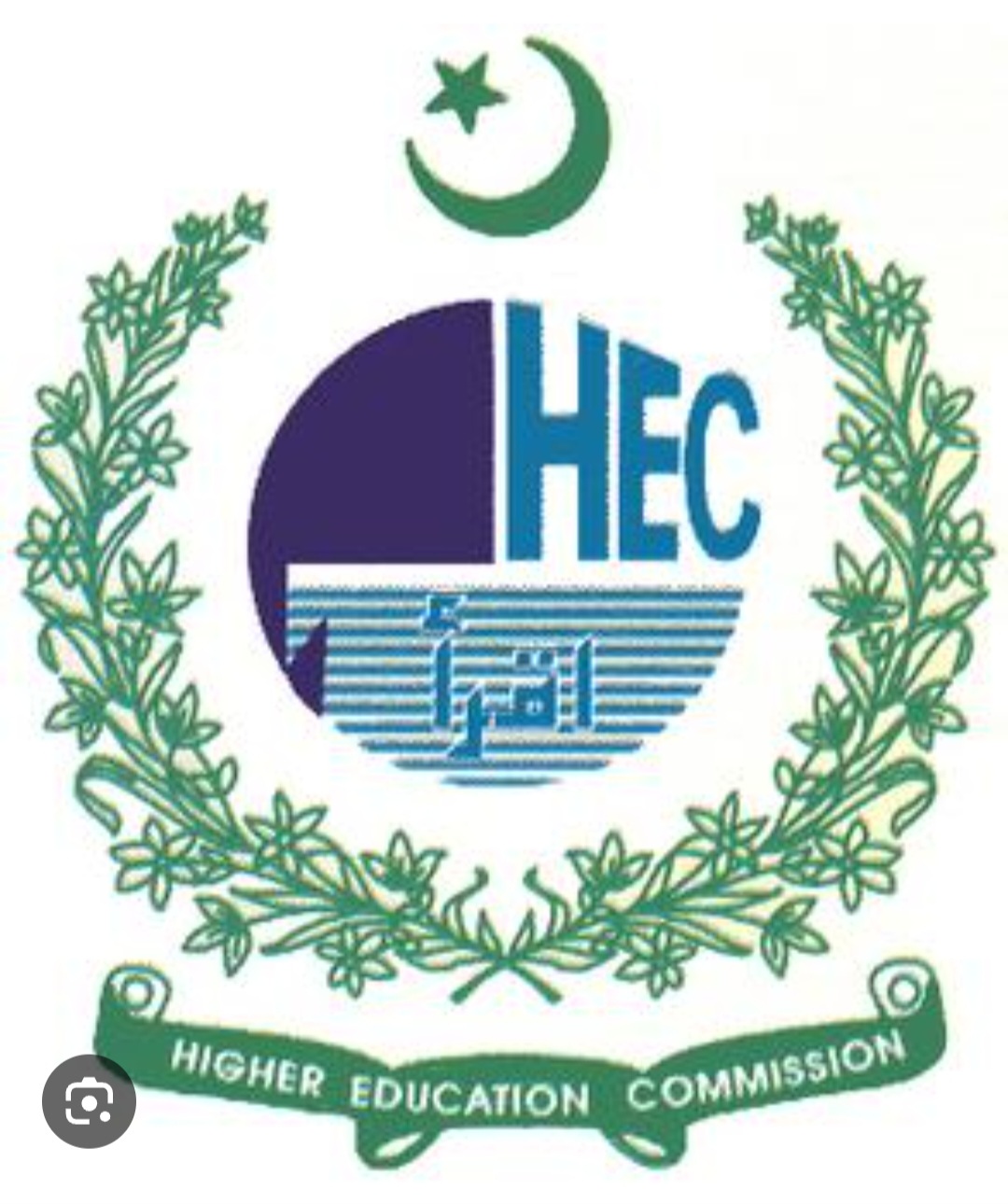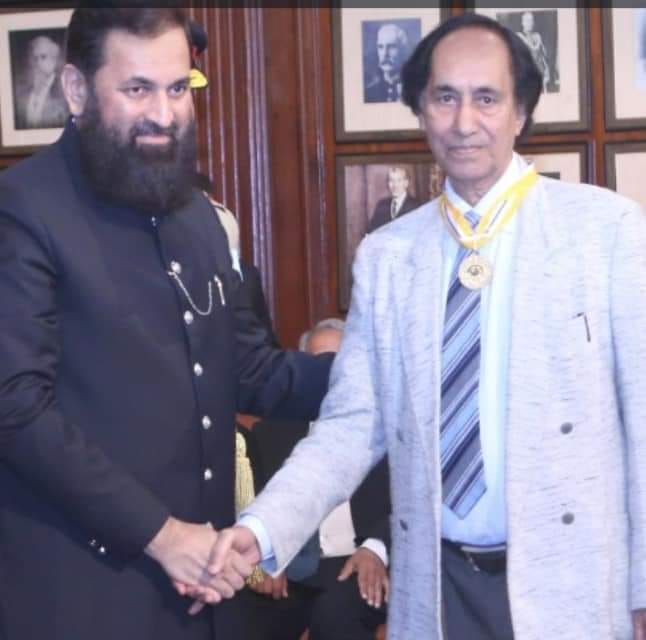Former HEC Chairman Dr. Mukhtar Ahmed's Tenure Ends Amid Corruption Allegations and Public Dispute with former Executive Director Dr Zia ul Qayyum
Questions Raised Over Merit-Based Appointments as Dr. Shahid Saroya Secures PIE Director General Position Despite Alleged Qualification Gaps

Vice Chancellor Dr. Muhammad Ramzan Gujjar Resigns from Emerson University Following Controversial Video Scandal
ISLAMABAD: Prominent academics and professors across Pakistan have voiced serious concerns regarding the deteriorating state of affairs within the Higher Education Commission (HEC), the country’s premier regulatory body for higher education. The gravity of the situation has been further highlighted by the ongoing public dispute between former HEC chairman Dr. Mukhtar Ahmed and former Executive Director Dr. Zia ul Qayyum, who have exchanged serious allegations over the controversial procurement of 100,000 laptops worth Rs. 12 billion.
Sources reveal that the conflict between the two officials was not limited to the laptop scandal but also stemmed from long-standing disagreements over administrative matters. The two had previously clashed over the management of two major foreign-funded projects worth billions of rupees, exacerbating tensions within the institution.
In response to these allegations, academics have demanded strict action against both Dr. Mukhtar and Dr. Zia ul Qayyum, accusing them of involvement in a Rs. 12 billion corruption scandal. They have called for a thorough investigation to ensure accountability and restore the HEC’s credibility. Additionally, educators have urged the President and Prime Minister to exercise greater caution in future appointments for the HEC chairman’s position, emphasizing the need for a clean, visionary leader free from ties to private university mafias or personal business interests.
The contentious tenure of Dr. Mukhtar Ahmed as HEC chairman has finally concluded, with all efforts to secure an extension proving futile. In a significant development, Education Secretary Nadeem Mahboob has been given interim charge of the HEC. The government’s initial appointment of Dr. Mukhtar had been widely criticized, as he was elevated from the seventh position on the merit list—a move that drew severe backlash from academic and institutional circles.
The Academic Staff Associations of Pakistani universities have demanded that the federal government form a high-level inquiry committee to investigate regulatory violations during Dr. Mukhtar’s tenure. The committee’s primary objective would be to probe controversial decisions and allegations, with calls to annul all appointments and transfers made in his tenure particularly final days. Sources indicate that these developments have triggered strong reactions, with the administration now striving to ensure transparency and uphold the rule of law.
The Auditor General Report during the tenure of Dr Mukhtar as Chairman HEC and Executive Director Zia ul Qayyum shows irregularities.
The Auditor General of Pakistan has flagged financial irregularities amounting to Rs. 5.29 billion in the HEC and its affiliated universities during the fiscal year 2023–24. The audit report reveals that the largest discrepancy involves the retention of Rs. 4.852 billion by the HEC in its own income account instead of depositing it into the federal government’s Treasury Single Account (TSA), violating the Public Finance Management Act, 2019. Despite a Finance Division notification in January 2023 mandating compliance with the TSA regime, the HEC continued managing these funds independently.
Additionally, the audit uncovered unauthorized disbursements of Rs. 359.617 million to public sector universities under various development projects without approval from the Planning Commission. Furthermore, procurement-related violations were identified, including Rs. 35.076 million spent on IT equipment under the "Smart Universities" project without adhering to open competitive bidding procedures.
Planning Minister Ahsan Iqbal, in a strongly worded letter to Prime Minister Shehbaz Sharif last year, raised concerns over the performance of Pakistan’s higher education institutions. He urged the prime minister to replace the HEC leadership with a new team capable of addressing prevailing challenges. Iqbal emphasized that nearly two-thirds of Pakistan’s population is below the age of 30, presenting both an opportunity and a risk. He stressed the need for quality education and skills development to harness this demographic potential.
The HEC’s recent advertisement for its chairperson position has drawn criticism from education experts, including former Vice Chancellor Prof. Dr. Asghar Zaidi, who argues that the eligibility criteria may deter visionary candidates. Among the concerns raised are the 15-year experience requirement, the age limit of 65 years, and the two-year term, which experts argue is insufficient for long-term reforms.
Prof. Zaidi and other stakeholders contend that leadership should be judged by vision and capability rather than age, pointing out that previous HEC chairpersons were appointed even after turning 70. Critics also argue that the short tenure undermines strategic planning and institutional continuity. Education experts are calling for a revision of the criteria to attract top-tier talent, including from the global academic community, to steer Pakistan’s higher education system toward meaningful progress.
Growing concerns have emerged over the deteriorating state of higher education in Pakistan as academicians and student bodies raise alarms over the potential appointment of Prof. Dr. Muhammad Ali Shah, Vice Chancellor of Punjab University, as the next Chairman of the Higher Education Commission (HEC).
Critics argue that Dr. Shah, during his tenure as Vice Chancellor, has failed to address pressing student issues, often avoiding direct engagement with them. Instead, he has been criticized for forming endless committees without yielding tangible solutions, showcasing a lack of decisive leadership. Sources allege that his previous stints as Vice Chancellor of Bahauddin Zakariya University (BZU) and Quaid-e-Azam University (QAU) left these institutions in disarray, raising serious doubts about his suitability for the HEC’s top post.
Meanwhile, academic staff associations and prominent educationists have appealed to the Prime Minister and President of Pakistan to scrutinize the appointment of Vice Chancellors across universities, citing incompetence and unethical appointments.
Dr. Muhammad Ramzan Gujjar has tendered his resignation as Vice Chancellor of Emerson University in Multan following the emergence of controversial videos that sparked widespread public outcry and institutional pressure.
The controversy began when inappropriate videos allegedly involving Dr. Gujjar surfaced online several days ago, leading to intense criticism from various quarters. The content of these videos, described as indecent by sources, quickly circulated across social media platforms, drawing significant public attention to the matter.
According to reports, the scandal has deeper roots, with allegations against Dr. Gujjar dating back approximately two years. During this period, he faced persistent protests from students and faculty members who accused him of maintaining inappropriate relationships with colleagues. The situation escalated when a colleague reportedly provided a formal statement regarding the alleged misconduct.
Dr. Gujjar's tenure at Emerson University spanned nearly four years before his resignation. However, sources indicate that his controversial history extends beyond his current position. Allegations suggest he previously resigned from his role as librarian at the Lahore University of Management Sciences (LUMS) following accusations of sexual misconduct involving a faculty member. Similar circumstances reportedly led to his departure from the University of Central Punjab and Leads university.
The controversy surrounding Dr. Ramzan extends to his appointment as Director General of the Punjab Higher Education Commission (PHEC). Sources claim this appointment violated merit-based selection criteria, as his background as a librarian allegedly did not provide the relevant experience typically required for such a senior administrative position. Questions have been raised about whether key information regarding his credentials was deliberately concealed during the appointment process.
During his tenure as Director General Accreditation, Dr. Ramzan faced additional scrutiny over alleged financial irregularities. Audit reports reportedly highlighted concerns about his age eligibility and qualification standards, suggesting his appointment may have circumvented established protocols.
The case has attracted attention at the highest levels of provincial government. Observers have called upon Punjab Chief Minister Maryam Nawaz to personally oversee the investigation, emphasizing the importance of preventing individuals with questionable backgrounds from occupying key educational positions.
Despite his resignation, sources suggest Dr. Ramzan may be attempting to maintain his influence through connections within the bureaucracy, media, and political circles. Reports indicate he is seeking support from political allies across different parties, with some suggesting his resignation has not been formally accepted and that he may continue in his role until a replacement is appointed.
The incident has raised broader questions about governance and accountability in Pakistan's higher education sector, highlighting the need for more stringent vetting processes for senior academic appointments. The case continues to develop as institutional and governmental responses unfold.
Adding to the controversy, Dr. Shahid Saroya, the former Director General of the Punjab Higher Education Commission (PHEC), is enjoying the post of Director General Pakistan Institute of Education (PIE) in Islamabad despite facing serious allegations of corruption and professional malpractice.
His appointment has raised significant concerns about governance and merit-based selection processes in Pakistan's educational institutions, as sources suggest Dr. Saroya secured the position through political connections rather than meeting standard qualification requirements.
According to media reports, Dr. Saroya's professional background and qualifications have come under intense scrutiny. Until 2016, he served as an assistant librarian, a position equivalent to Basic Scale (BS) 17 in Pakistan's government pay structure. However, his rapid ascension to the role of PHEC Director General—equivalent to BS-20 with four increments—in 2016 has raised questions about the legitimacy of his career progression.
The statutory requirements for the position of PHEC Director General mandate a minimum of 10 years of relevant experience along with a PhD qualification. Investigative reports suggest that Dr. Saroya falls significantly short of meeting these essential criteria.
"He concealed crucial facts and submitted fabricated documents to secure his selection as PHEC Director General," according to media sources familiar with the case. This alleged document falsification represents what critics describe as a "total violation of merit" and constitutes fraudulent activity.
Despite the ongoing allegations and questions surrounding his professional credentials, Dr. Saroya has successfully obtained the Director General position at the Pakistan Institute of Education in Islamabad. Officials and education sector observers have expressed concern that political influence, rather than merit-based assessment, facilitated this appointment.
The Pakistan Institute of Education serves as a crucial institution in the country's educational framework, making the integrity of its leadership positions particularly significant for maintaining public trust and institutional standards.
Educators warn that such appointments, driven by favoritism rather than merit, are severely damaging Pakistan’s higher education system. They urge the government to prioritize transparency and competence in leadership roles to salvage the country’s academic future.


No comments yet.